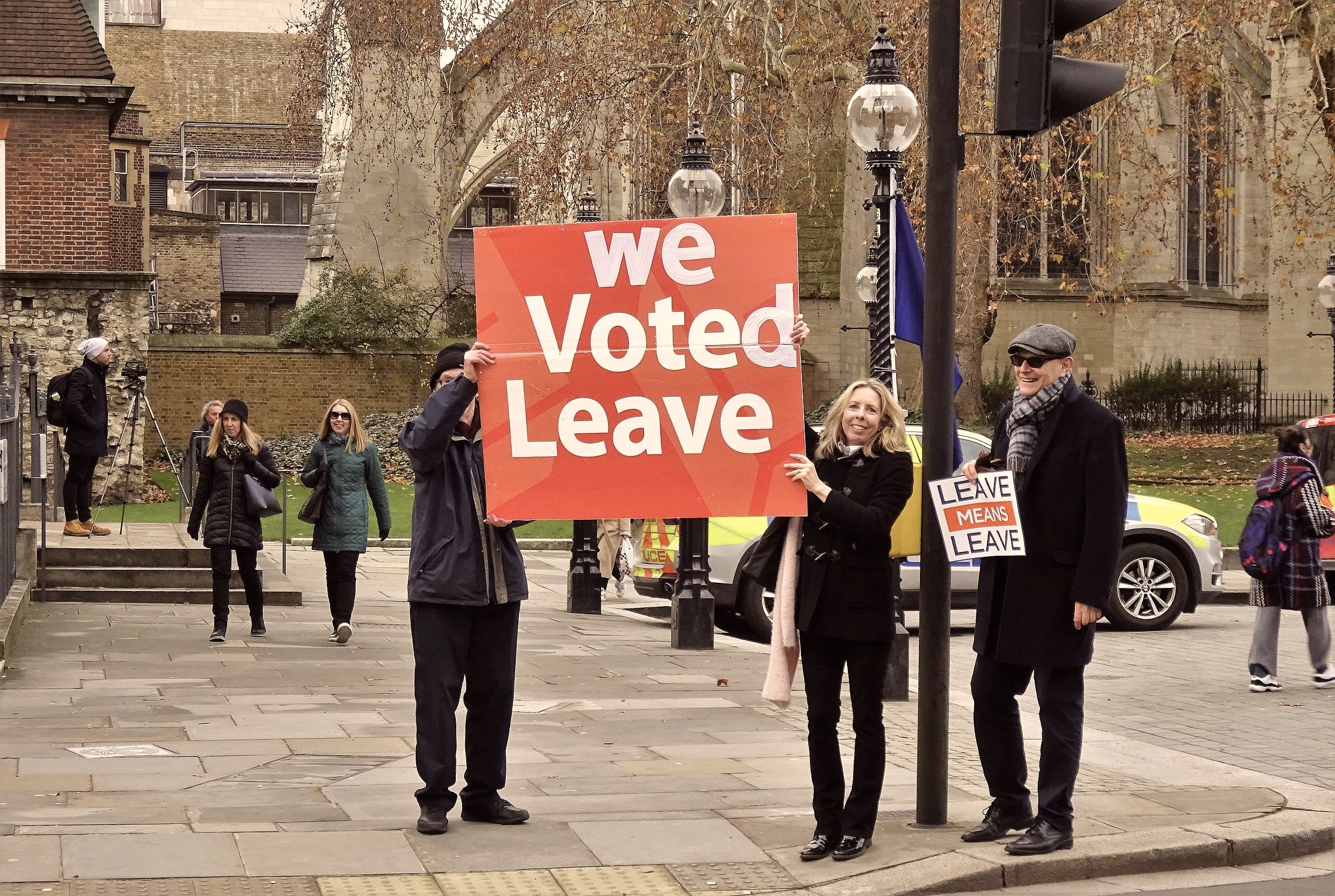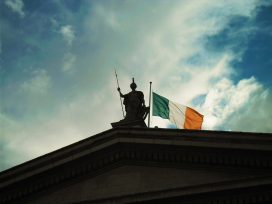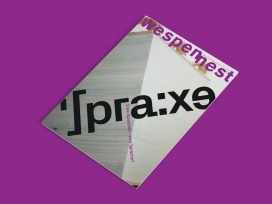After Trump’s election, millions of words were typed about how ‘blue collar’ areas had turned out to vote Republican. Yet Clinton led by 11% among voters who earn less than $50,000. Trump secured his victory by winning among those who earn $50-200,000. Much the same can be said for the far right in Italy, whose core support is in the wealthier – though now de-industrialising – north, rather than in the more impoverished south; or about Brazil, where 97% of the richest areas voted for the fascist Bolsonaro, whilst 98% of the poorest neighbourhoods voted for the Workers’ Party candidate, Haddad.
We see a similar tendency in debate about Brexit. After the vote, journalists went on endless tours of deprived areas to report on how working-class people voted Leave (which many did). However, they somehow forgot to mention that wealthy counties like Wiltshire backed Brexit, while some of the poorest areas of the UK – the western parts of Wales, Scotland and Northern Ireland, as well as Liverpool and Leicester – voted Remain. Academics who studied the class breakdown of the Brexit vote found ‘the Leave vote to be associated with middle class identification and the more neutral “no class” identification. But we find no evidence of a link with working class identification.’
This is nothing new. Ruling classes have always sought to blame bigotry on the working classes. Too often in recent times, the liberal media have been willing to champion this myth, rather than confronting the prejudice in its own ranks.
The way we talk about social media is central to narratives that blame the oppressed for their own oppression. Online bigotry, abuse and trolling are often framed as problems of the unwashed masses, who need to be regulated by ‘benign’ institutions such as global data corporations or the police. In reality, whilst racism, Islamophobia, misogyny, anti-immigrant hysteria and other forms of bigotry feature up and down the social spectrum, their recent mobilization is part of a different story. It has been led and co-ordinated by elite networks, seeking to reshape the world at the dusk of neoliberalism. And they are often in direct collaboration with these supposedly respectable institutions, from Facebook to the Feds.
To put it another way: the decade since the financial crisis has accelerated the emergence of a new global oligarch class. With growing wealth has come growing power and a growing ability to shape political debate through the dominant communications technology of the era: TV and the internet. As has long happened with right-wing movements, they have done so in close collaboration with military and security networks. Because the era is neoliberalism, those networks are largely privatised, made up of mercenary firms with names like Palantir, Arcanum, SCL, AggregateIQ and Cambridge Analytica.
Brexit, Arron Banks and the missing millions
Take, for example, the Brexit referendum in the UK. The Leave movement operated a bit like a solar system, whose two largest planets were surrounded by a collection of moons. First, there was Vote Leave, the official Brexit campaign, fronted by Conservative politicians Boris Johnson and Michael Gove, and orbited by numerous other campaigns and front groups. Second was Leave.EU, associated with the further-right UK Independence Party, fronted by iconic blazered bigot Nigel Farage and primarily funded by an insurance man called Arron Banks. (Banks, by my sums, claims to have funnelled about £15m into the group and its various moons.)
For the last two years, my colleagues and I at openDemocracy (alongside The Observer’s Carole Cadwalladr and others) have investigated where on planet Earth Banks got all of this money and what he did with it. The bottom line is that we don’t really know. But here’s a sample of some of the things we do know.
We know that Banks doesn’t seem to be nearly as rich as is often claimed. We know that the diamond mines he’s bragged about owning in South Africa haven’t produced any serious wealth. That said, we also know that he makes careful use of the UK’s extensive network of tax havens and secrecy areas, with footholds in Gibraltar, the Isle of Man and the British Virgin Islands.
We know that the Gibraltar-based firm which Banks claims was the source of the Brexit cash was, during the referendum, struggling financially, and was propped up by one of his Isle of Man-based companies, which in turn has an unknown minority shareholder. We know that on the day after the referendum, this Manx company brought onto its board one of Banks’s business partners, Alan Kentish.
And we know that Kentish, the pro-Brexit chief executive of the STM group, which specialises in offshore wealth preservation, has been arrested in Gibraltar under its proceeds of crime act, and has had brushes with the authorities in Malta, Jersey, and St Kitts and Nevis.
We know that the person who introduced the UKIP frontman, Nigel Farage, to the supposed money man, Arron Banks, is the Isle of Man-based Brexit-backing billionaire Jim Mellon, who made millions from mass privatisations after the collapse of the Soviet Union in the 1990s. And we know that Arron Banks lied about meetings with the Russian embassy, to which it now turns out he was a regular visitor, discussing various business opportunities.
Arron Banks, Alan Kentish and Jim Mellon deny any wrongdoing.
The UK’s Electoral Commission initially looked at Banks’s dealings and resolved that there was ‘nothing to see here’. But after openDemocracy and Carole Cadwalladr broke more and more of the story, it eventually agreed to investigate thoroughly, eventually fining Leave.EU and referring the case to the police. The Commission has concluded that it has ‘reasonable grounds to suspect that Mr Banks was not the true source’ of the millions he poured into the Brexit campaign. After London’s Metropolitan Police didn’t bother to pick up the relevant files for months, Banks is now at last being investigated by the UK’s National Crime Agency.
How Banks’s millions were spent is, largely, a mystery. Under the referendum rules, Leave.EU could spend only £700,000 in the last ten weeks of the campaign; but spending before that period isn’t restricted and doesn’t have to be declared. When I compared the declared donations to Banks’s various groups and the amounts they said they spent in that limited period, there was a gap of £11m.
We don’t know how that was spent. However, the most likely destination of the missing millions is online adverts. And we can guess at the kind of message they promoted from the materials that the Leave.EU campaign promoted in what some call ‘meatspace’. The poster, depicting a line of Syrian refugees with the words ‘Breaking Point’, was launched by Nigel Farage the same day that the Labour MP Jo Cox was murdered by a man shouting “Britain First!” and “Traitor!”
The dark money behind Vote Leave
The official Leave campaign has aroused less suspicion about the sources of its cash. However, one of its most significant orbiting moons has been the subject of an ongoing openDemocracy investigation, raising questions about the nature of the campaign more broadly.
The week before the referendum, I arrived back in Edinburgh (where I live) to find two Leave campaigners outside the train station. After interviewing them briefly, and then objecting to their complaints about refugees, I spotted something odd. The placards they were holding were funded by the Democratic Unionist Party – a Northern Irish Loyalist party (as in, loyal to the British crown). Why was a party in Northern Ireland funding propaganda in Scotland?
On my walk home, the answer struck me. Northern Ireland was the only part of the UK where political donations aren’t public: a provision that the main parties had managed to smuggle into law during the peace process, in theory as a way to protect donors from reprisals. Someone was using this loophole to flood cash into the referendum campaign.
Like Banks’s money, we still don’t know where this cash came from. But here are some things we have managed to find out. We now know that the donation was £435,000 – around 20 times what the DUP spent in the general election in June 2017. We forced the DUP to reveal that the money had come via a previously unknown group in Glasgow called the Constitutional Research Council, chaired by the former vice-chair of the Scottish Conservatives, Richard Cook.
We discovered that Richard Cook set up a company in 2013 with Nawwaf bin Abdulaziz al Saud, the former head of the Saudi Arabian intelligence service, and with a man called Peter Haestrup, who admitted to us that he was involved in running hundreds of Kalashnikovs to Hindu terrorists in West Bengal in 1995 – though he hinted at intelligence service links, telling my colleague Peter Geoghegan that he was ‘on the right side – that time’.
We know that Cook, while claiming to be in the recycling business, was accused by UK regulators of an ‘illegal waste shipment’ of 250 tonnes of tyre waste that was dumped in India. We know he supplied what appears to be faked documents to the British authorities in relation to the shipment, and that he was a defendant in a court case in California about $1.5m of unpaid bills to an international haulage company. We know that one of Cook’s companies, which has gone into liquidation owing UK tax authorities £150,000, appears to have £5m of gold in a bank in Cambodia. We also know, thanks to the BBC picking up on our investigation, that Cook seems to have claimed to have recycled hundreds of tonnes of Ukrainian railway tracks which appear never to have existed, in a business deal with a convicted German criminal. Cook denies all these allegations.
Cook’s group, the Constitutional Research Council, also provided a route for cash to be funnelled into the key organisation of Brexit-backing Tory MPs, the European Research Group.
Cook himself lives in a semi-detached house in suburban Glasgow, which is probably worth less than the value of the donation his group gave the DUP, and appears unlikely to be the source of the cash. He denies any wrongdoing. The UK electoral regulator is supposed to know where the DUP cash comes from, and claims that it does, even if it isn’t allowed to tell us. But recent court documents have cast doubt on its confidence: its investigations seem to have amounted to asking Richard Cook where he got the money, and then believing his answers. A country doesn’t become the world centre for money laundering by employing inquisitive officials.
The fashion student, the army chief and the tech giant
MPs from across the political spectrum have written to the Electoral Commission, demanding a ‘full investigation’ of the controversial DUP cash. The regulator has yet to respond. However, Vote Leave was eventually fined by the regulators over a different affair, where it got round referendum spending limits by giving £675,000 to a small campaign run by a fashion student in his early twenties called Darren Grimes. At the same time as funnelling this cash to Grimes’s campaign, Vote Leave gave £100,000 to another group, Veterans for Britain, which in many ways represents the core of the part of the establishment which brought Brexit to Britain.
Veterans for Britain is more than the hobby of a few ex-squaddies. Its advisory board includes a collection of very senior retired military figures. Most senior of them all is Field-Marshal Lord Guthrie, the former head of British armed forces and chief of defence staff. Like many former soldiers in the contemporary era, Guthrie took up a new career later in life. In 2017, he was appointed advisor to the chairman of Arcanum, which describes itself as ‘a strategic intelligence company that provides services to sovereign governments and multinational corporations’. Arcanum’s staff have also included a former chief of France’s Central Directorate of Interior Intelligence; a (late) former Mossad chief; a former US director of national intelligence; and a former director of the UK’s National Crime Agency, who in that role was chairman of the ‘Five Eyes’ Anglophone intelligence alliance, whose surveillance activities were famously exposed by Edward Snowden. Arcanum’s chairman himself – Ron Wahid – has described Brexit as ‘an opportunity for American business’.
As well as his work for Arcanum, Guthrie declared in his autumn 2014 register of interests in the House of Lords that he had shares in Palantir, a private company owned by Peter Thiel, the PayPal founder, Facebook board member and major Trump donor, who reportedly turned down the job as chair of the president’s intelligence committee. Named after the all-seeing stone in The Lord of the Rings, Palantir was founded with support from the CIA with the aim of being ‘a company that took big data where no one else dared to go’. It has been described by The Guardian as the ‘special ops’ tech giant that wields as much real-world power as Google’ and, as an investigation by The Intercept has shown, it has worked with the surveillance agencies of the US, UK, Australian and Israeli governments.
A few years after Thiel founded Palantir, he wrote a now-notorious essay in which he argued that the extension of the franchise to women has ‘rendered the notion of “capitalist democracy” into an oxymoron’ and therefore that his fellow libertarians must focus on developing the technology that will ensure that it is capitalism, rather than democracy, which wins the struggle: ‘The fate of our world may depend on the effort of a single person who builds or propagates the machinery of freedom that makes the world safe for capitalism.’
There is no evidence that Palantir was involved in the Brexit referendum. However, another mercenary surveillance/propaganda firm sat at the very centre of the Brexit solar system, arguably the star around which both campaigns orbited. And that company was Cambridge Analytica.

London December 4 2018 Brexit Protest Parliament. Photo source: Wiki commons
Digital mercenaries
To be precise, Cambridge Analytica was the subsidiary that was used to run the Trump campaign later that year. Its parent is called SCL, and the firm which ran the Brexit campaign was a Canadian company called AggregateIQ. Carole Cadwalladr has shown that there were numerous close connections between AggregateIQ, Cambridge Analytica and SCL.
Go to the SCL website and it’s very clear what it is: the first line of the home page reads, ‘SCL provides data, analytics and strategy to governments and military organisations worldwide.’ In 2006, the author Hywel Williams described them as ‘the first private company to provide “psyops” to the military’.
In other words, Vote Leave’s online operation was run by people who learnt their skills as mercenary military propagandists. It’s how they spent the biggest chunk of their own money. Almost all of the cash they shuffled into fashion student Darren Grimes’s campaign went directly to them as well. As did a chunk of the DUP cash.
The relationship between Leave.EU and SCL/Cambridge Analytica is more contentious, and has been the subject of ongoing investigations. A Cambridge Analytica staff member spoke at the launch of Leave.EU, but Banks has long denied hiring the company. However, my colleague Peter Geoghegan revealed last year that, before the campaign, Arron Banks was in email contact with Steve Bannon, then Cambridge Analytica’s vice-president, and later chief strategist to Donald Trump.
We also know, after Facebook finally gave in to significant pressure, what sorts of messages the Leave campaigns were targeting at people online. Two years after the referendum, a UK parliamentary inquiry got its hands on the adverts Vote Leave had promoted online. It transpired that while the supposedly respectable official Leave campaign had focussed on the economy in the traditional media, its targeted Facebook adverts, seen by millions of people across the country, focussed very heavily on immigration and on Islam.
During the referendum, the ideas – often straight lies – promoted in these adverts took hold in the minds of many voters; particularly effective was the fiction that Turkey is on the verge of joining the EU. This social media campaign didn’t exist in a vacuum, of course – it acted in concert with the oligarch-owned tabloid press.
Later that year, Islamophobia would again emerge as a key part of Cambridge Analytica’s strategy when it was hired to run Donald Trump’s campaign for the White House. As the academic Emma Briant, who interviewed key figures in the company, wrote: ‘Using [Cambridge Analytica’s] media strategy, Trump’s false racist and Islamophobic comments, resentment and fear were deployed where they would be most effective – mobilising swing state audiences, using voters’ personal data to monitor them, and using psychological profiling to manipulate their emotional responses en masse.
New technology, old story
The idea that powerful groups would spread racist messages through the dominant media is nothing new. In the UK, we’ve had tabloid newspapers for decades. In Italy, similar ideas are promoted on TV by the Berlusconi-owned media, and across the western world powerful groups have always used the dominant communications technology of the era to shape political debate.
Online communications technology is sometimes described as though it’s some kind of voodoo – able to hypnotise audiences into doing anything. This is a mistake. But it’s also a mistake to discount it entirely: companies pay for advertising because it works.
Just like the traditional rightwing press, far-right groups tap into the neuroses of the societies in which they operate. They jump on reactionary backlashes to egalitarian movements, they pump up latent ideas of racism and sexism that exist throughout society. Brexit, Trump, Orbán, Salvini, Bolsonaro and Le Pen all tap into deep social and cultural crises in their countries. But their success comes not from addressing the causes of the deep feelings of alienation produced by late capitalism, but from facilitating displacement mechanisms and from encouraging people to blame anyone but those with real power – those who have thrived in the recent crisis.
Neoliberalism in general, and the asset-stripping of the former Soviet Union in particular, produced a new generation of oligarchs, expert in hiding money from the prying eyes of state officials. Traditional authoritarianism emerges from alliances between the very wealthy and military and police networks. But neoliberalism has also delivered a largely privatised military, and it is to them that this rising class has turned when it wishes to secure power.








